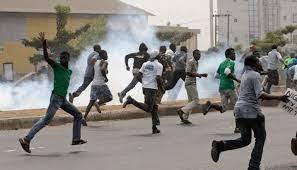Save the Children, a non-governmental organisation (NGO) has said that across Africa, 170 million children live in conflict zones which is equivalent to one in every four African children stating that it the highest absolute number of any region in the world.
The Regional Head of Advocacy, Campaign for West and Central Africa at Save the Children, Vishna Shah further said Children in these conflict zones are at highest risk of violence since records began.
In a new report issued on Thursday in Abuja, Shah lamented that wars and conflicts are intensifying for children, while fewer children are living in conflict affected areas, those who do, run the highest risk of falling victim to serious violence.
Shah explained that available data shows that in conflict situations, girls were far more likely to be raped or fall victim to other forms of sexual abuse than boys 87 percent of all verified cases involved girls, while 1,5 percent of the sexual violence boys were targeted. In 11 percent of the cases the sex of the victim was not recorded.
She said successive generations of children across the continent have grown up knowing nothing other than conflict, including in the three West and Central Africa countries who are included in the list of the top ten worst conflict-affected countries to be a child – DRC, Mali, and Nigeria.
She further explained that these numbers are prepared for Save the Children by the Peace Research Institute in Oslo (PRIO).
She said “In times of crisis, we have seen that children are more vulnerable to marriage as families turn to coping mechanism to survive.
“These young girls who are forced into marriage are instantly robbed of their childhood, many have to drop out of the education system and are locked into a lifestyle where they have limited decision making power and mobility.”
She said there more needs to be done to urgently protect girls from early marriage, this means increased investment in programmes and increased data to better understand the reality of the situation.



